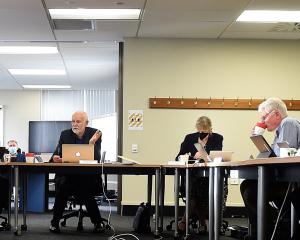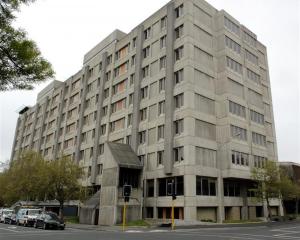Prof Gauld's article, "Are elected health boards an effective mechanism for public participation for health service governance?" is to be published in British journal Health Expectations.
The article questions how elections had performed in giving the public a say, and suggests other measures could be needed to increase participation.
Prof Gauld told the Otago Daily Times DHB elections were accompanied by less "noise" than the first elections in 2001, when the public seemed interested in who was standing, and high-profile candidates' meetings were held.
Voter turnout dropped from 50% in 2001 to 43% in 2007, compared with 49% in 2007 for district councils.
Prof Gauld said DHB members were in an unusual position because, unlike local body politicians, they were legally accountable to the Government, rather than electors.
New members were firmly instructed of their responsibilities to implement Government policy during training they received at the beginning of their term, Prof Gauld said.
He believed many candidates did not understand their primary responsibility would be to the Government rather than the people.
Many realised they were "ham-strung" after they were elected.
Prof Gauld believed remuneration was a factor in why there was still a healthy number of candidates. Undoubtedly, some skilled and articulate people put themselves forward for DHBs, he said.
The best thing about DHBs had been increased transparency of local health decision-making through open monthly meetings of boards and committees.
New Zealand was the only country in the world with a comprehensive elected health board system surviving a number of electoral cycles, Prof Gauld said.
Prof Gauld would like to see more training of DHB members in health best practice, particularly in how overseas health systems were run.
He expected the Government to place greater emphasis on financial training for DHB members after October's election.
Prof Gauld said another option for public representation was to have far fewer elected members, and appoint an advisory panel of people with experience of the health system, similar to drug buying agency Pharmac.
Twenty-two people in Otago and Southland have put themselves forward for seven elected spots on the Southern District Health Board.
DHB pay
DHB member: $23,000.
DHB chairman: $50,000.
Deputy DHB chairman: $36,000.
Advisory committee chairman: $3125.
Advisory committee member: $2500.











